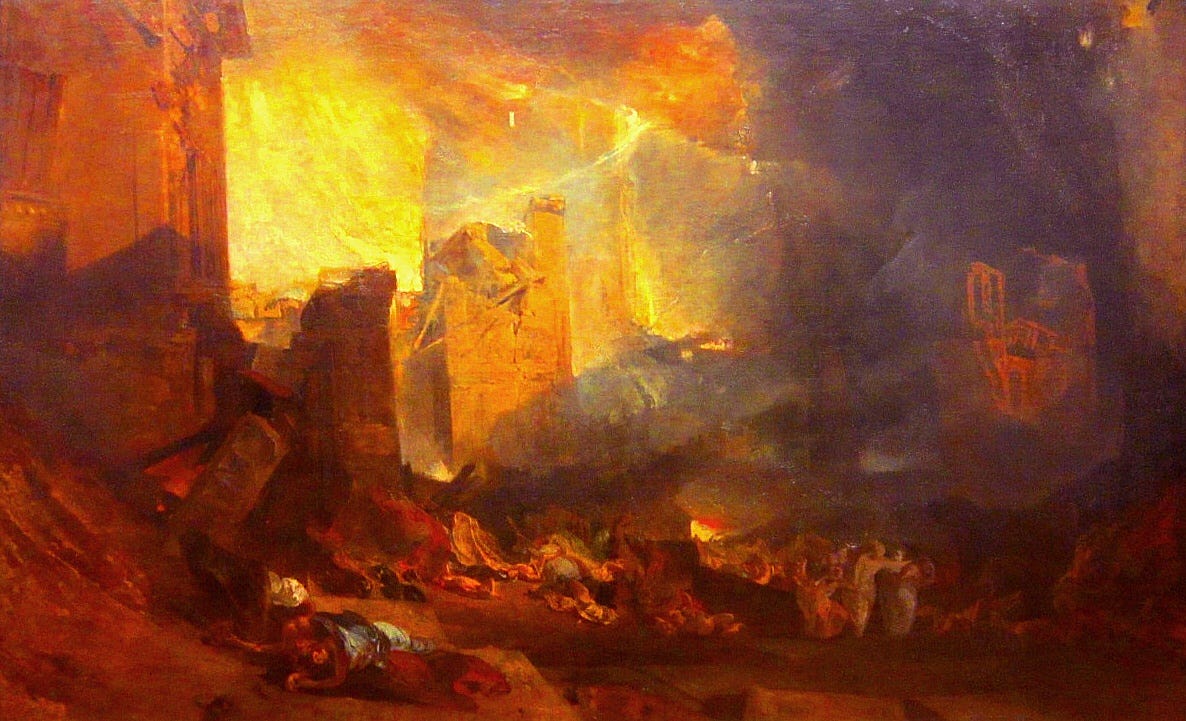The common journalistic technique of focusing on one individual in order to bring attention and clarity to a global, complex issue is referred to as “putting a human face on the story.” There are numerous examples, many Pulitzer Prize winners, which remind us behind every statistic there are living, breathing human beings. Perhaps the most iconic was Nick Ut’s photograph, taken during the Vietnam War of a young, naked girl suffering from napalm burns running down a road ahead of U.S. soldiers. Some claim the image was a factor in their own shift of sentiment away from supporting the war effort. Something the daily U.S. and Vietnamese casualty rates could not initially do.
Sometimes we need not even see the face. Consider Jeff Widener’s 1989 picture of “tank man,” a solitary protester standing in front of four Chinese tanks the day following the massacre of students in Tiananmen Square. Or Spider Martin’s snapshot of a woman’s blistered feet after a day of marching in Selma, Alabama on “Bloody Sunday.”
Many people prefer not to look. Some find the pictures more obscene than the events they chronicle. They are shocked the media would reproduce the images.* But that is the point. They are designed to shock us. Shock us out of our apathy. Our complicity. And out of our lack of connection to the individuals, often innocent people, captured in horrific situations and unbearable conditions.
 This morning we were again exposed to one of these personal moments behind the headlines. The Associated Press “put a human back,” actually two backs, on the narrative of the continuing and unnecessary tragedy on our Southern border. Julia Le Duc’s photograph depicts an El Salvadoran father Oscar Ramirez and his 23-month old daughter Valeria who drowned attempting to cross the Rio Grande River, only because the family had been denied access at a border crossing to the LEGAL (yes LEGAL) procedure by which refugees can seek asylum under UNITED STATES and INTERNATIONAL LAW.
This morning we were again exposed to one of these personal moments behind the headlines. The Associated Press “put a human back,” actually two backs, on the narrative of the continuing and unnecessary tragedy on our Southern border. Julia Le Duc’s photograph depicts an El Salvadoran father Oscar Ramirez and his 23-month old daughter Valeria who drowned attempting to cross the Rio Grande River, only because the family had been denied access at a border crossing to the LEGAL (yes LEGAL) procedure by which refugees can seek asylum under UNITED STATES and INTERNATIONAL LAW.
If their sacrifice in any way contributes to an easing of the suffering Donald Trump has inflicted on those who look to America with hope and promise, it makes me wonder, when Trump refers to “bad hombres” invading America, should we be more worried about the “bad hombres” in the White House?
POSTSCRIPT: THE GOOD, THE BAD AND THE EVEN UGLIER
In recent posts, I have been highly critical of both the media and the evangelical community, but coverage of the Trump administration’s actions and defense of those actions which require infants and children to live in sub-human conditions seems to have turned a few hearts, even among Donald Trump’s staunchest supports. Yesterday, in response to the Associated Press stories about the detention center in Clint, Texas, Dr. Russell Moore, president of the Ethics and Religious Liberty Commission of the Southern Baptist Convention, tweeted:
The reports of the conditions for migrant children at the border should shock all of our consciences. Those created in the image of God should be treated with dignity and compassion, especially those seeking refuge from violence back home. We can do better than this.
One could expect no louder clarion call from the religious right to remind Donald Trump and Mike Pence of Jesus’ teachings. Sadly, some turned the other cheek (or should I say a deaf ear). Among those was Jerry Falwell, Jr., president of Liberty College, who responded to Dr. Moore as follows:
Who are you @drmoore? Have you ever made a payroll? Have you ever built an organization of any type from scratch? What gives you authority to speak on any issue? I’m being serious. You’re nothing but an employee- a bureaucrat.
Maybe Falwell missed the Bible lesson when, in John 2:16, Jesus says of money changers, “Stop turning my Father’s house into a market!”
Was I surprised? No and yes. No, this is the same faux Christian who gives more mulligans to Trump than revelers hand out strings of beads at a Mardi Gras parade. I am, however, bewildered he could not come up with a more clever retort. Maybe, “I’ll say it with great respect, these children are not my type.”
*NOTE: USA Today, after warning readers of the graphic nature of Le Duc’s photograph, wrote, “We believe the photo is important in telling the story of what is happening at the border.”
For what it’s worth.
Dr. ESP
 If wasn’t the two interns in the Secretariat horse costume. Or his animatronic sidekick Geoff Peterson, operated and voiced by celebrity impersonator Josh Robert Thompson. It was the fact Ferguson did not tell jokes, he told stories. Whether during the opening monologue or sitting in the host’s chair with his feet up on his desk, this Scottish born naturalized U.S. citizen had your attention as he methodically wended his way from set-up to punchline.
If wasn’t the two interns in the Secretariat horse costume. Or his animatronic sidekick Geoff Peterson, operated and voiced by celebrity impersonator Josh Robert Thompson. It was the fact Ferguson did not tell jokes, he told stories. Whether during the opening monologue or sitting in the host’s chair with his feet up on his desk, this Scottish born naturalized U.S. citizen had your attention as he methodically wended his way from set-up to punchline. You don’t need three degrees in political science, 13 years in state government or staffing several campaigns to recognize the answer is a resounding “NO!” One example, the Cuban missile crisis, when we came the closest to nuclear war since the advent of the atomic age, is all you need to understand why. John Kennedy huddled with his advisors and generals for days to first analyze the situation and then choose a course of action. He then went on television to explain to the American people his decision to blockade Cuba and what was at stake. No “fire and fury” or “Nikita Rocketman.” Now that is what I call an actual MAGA moment in presidential history.
You don’t need three degrees in political science, 13 years in state government or staffing several campaigns to recognize the answer is a resounding “NO!” One example, the Cuban missile crisis, when we came the closest to nuclear war since the advent of the atomic age, is all you need to understand why. John Kennedy huddled with his advisors and generals for days to first analyze the situation and then choose a course of action. He then went on television to explain to the American people his decision to blockade Cuba and what was at stake. No “fire and fury” or “Nikita Rocketman.” Now that is what I call an actual MAGA moment in presidential history. That is why I have no doubt The Impeachment will eventually be picked up by multiple news channels and broadcast networks. There will be no lack of conflict. In the promo for episode one, the announcer will hype a potential “must see” moment when Judiciary Chairman Gerald Nadler (D-NY) and former Ohio State assistant wrestling coach Jim Jordan (R-OH) take off the gloves and hit the mats. And talk about salacious. Not only do we have porn stars and Playboy playmates, we have FBI agents engaged in illicit love affairs.
That is why I have no doubt The Impeachment will eventually be picked up by multiple news channels and broadcast networks. There will be no lack of conflict. In the promo for episode one, the announcer will hype a potential “must see” moment when Judiciary Chairman Gerald Nadler (D-NY) and former Ohio State assistant wrestling coach Jim Jordan (R-OH) take off the gloves and hit the mats. And talk about salacious. Not only do we have porn stars and Playboy playmates, we have FBI agents engaged in illicit love affairs. Justice may not be served, but I can live with any of these outcomes. Why? Because Trump becomes the two thing he fears most. Unloved and broke. From reporting in the New York Times and Wall Street Journal, the Trump brand is taking a beating. The one exception is the Trump DC hotel where those who curry favor with this administration bow down at the altar of the Trump Organization. But those same lobbyists and foreign governments will not want to cross a Democratic president by patronizing Trump properties. And no more hosting dignitaries at Mar-a-Lago on the taxpayers’ dime. The decade during which Trump lost a trillion dollars will make the MAGA king believe those were the “good old days” to which he so much wanted to return. What’s more, no future generation will ever have to attend Donald J. Trump High School.
Justice may not be served, but I can live with any of these outcomes. Why? Because Trump becomes the two thing he fears most. Unloved and broke. From reporting in the New York Times and Wall Street Journal, the Trump brand is taking a beating. The one exception is the Trump DC hotel where those who curry favor with this administration bow down at the altar of the Trump Organization. But those same lobbyists and foreign governments will not want to cross a Democratic president by patronizing Trump properties. And no more hosting dignitaries at Mar-a-Lago on the taxpayers’ dime. The decade during which Trump lost a trillion dollars will make the MAGA king believe those were the “good old days” to which he so much wanted to return. What’s more, no future generation will ever have to attend Donald J. Trump High School. The second iteration is at Sodom and Gommorah, pictured here. Look familiar? The only difference is God did not need dragons to obliterate a city.
The second iteration is at Sodom and Gommorah, pictured here. Look familiar? The only difference is God did not need dragons to obliterate a city.